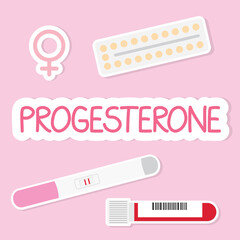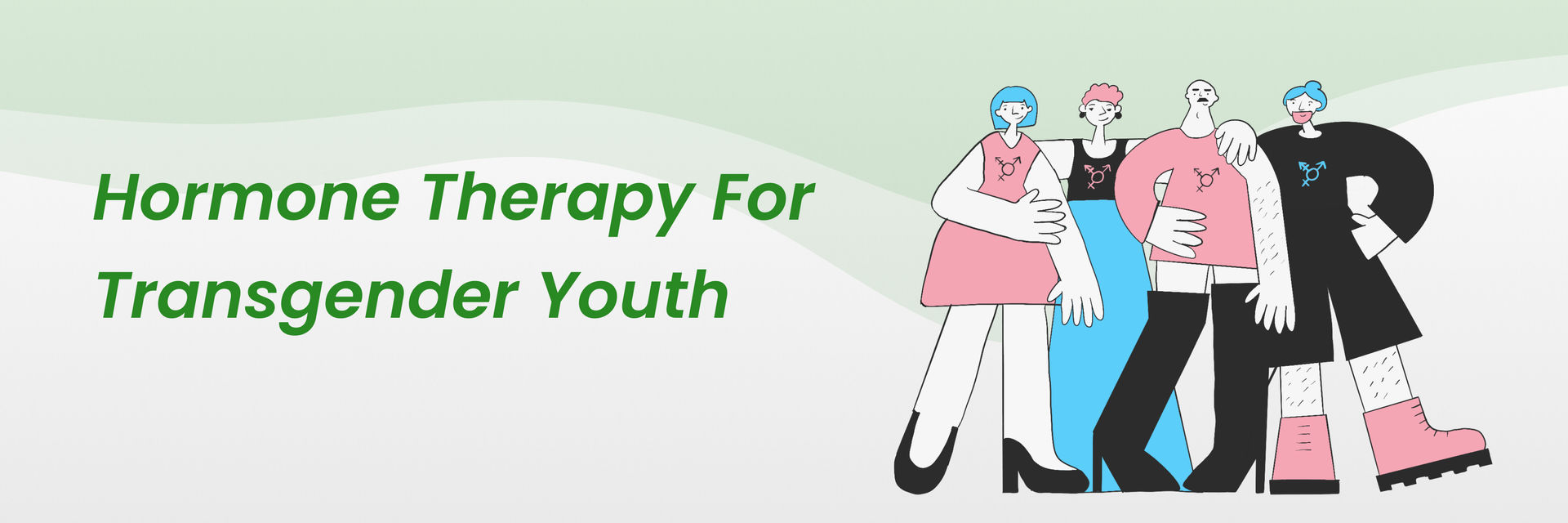Overview

Progesterone is a hormone produced by the ovaries in women and by the adrenal glands in both men and women. It is involved in various critical bodily functions, including the menstrual cycle, pregnancy, and the development of secondary sexual characteristics in women.
In transgender individuals, Progesterone may be used as (HRT) to help suppress testosterone production and promote the development of feminine physical characteristics.
Uses & Importance of Progesterone in hormone therapy for transgender

For transgender women, HRT typically involves the use of estrogen to help promote the development of feminine characteristics, such as breast growth and a more feminine fat distribution, as well as the suppression of testosterone production.
Progesterone in transwomen may be added to this regimen to help further suppress testosterone production and promote the development of other feminine characteristics, such as the thickening of the endometrium (the lining of the uterus).
Keep reading to find out how effective Progesterone for transgender is!
How safe and effective is Progesterone?

Progesterone is generally considered to be safe and effective when used as directed. It has been used for many years to treat various conditions, including menopause, irregular periods, and infertility.
In transgender individuals, Progesterone may be used as hormone replacement therapy (HRT) to help suppress testosterone production and promote the development of feminine physical characteristics.
It's important to note that HRT is a complex and personalized process, and the specific medications and dosages used may vary depending on the individual and their goals.
It's essential to work closely with a healthcare provider who is experienced in treating transgender patients and can help determine the best course of treatment for you, including considerations for Gender Reassignment Surgery.
You must be wondering, are there any risks associated with Progesterone for transgender? Let’s find out!
Benefits and Risks of Progesterone for transgender

Benefits | Risks |
| Progesterone for transgender can help reduce testosterone levels in the body, which can help suppress the development of masculine physical characteristics and promote the development of feminine physical characteristics. | Progesterone for transgender can cause drowsiness or fatigue in some people. If you experience drowsiness while taking Progesterone, you should avoid driving or operating heavy machinery until you know how the medication affects you.
|
By helping to suppress testosterone production and promote estrogen production, Progesterone may help promote the development of feminine physical characteristics, such as breast growth and a more feminine fat distribution. |
Progesterone can cause dizziness in some people, which may increase the risk of falls. If you experience dizziness while taking Progesterone, you should be cautious when standing up from a sitting or lying position and avoid activities that could be dangerous if you become dizzy.
|
| HRT can often help improve emotional well-being in transgender individuals by assisting them to feel more comfortable and aligned with their gendered identity. | Some people may experience headaches while taking Progesterone. You should talk to your healthcare provider if you experience frequent or severe headaches while taking Progesterone.
|
When to start Progesterone for MTF Transition?

There is a right time for everything!
So, when is the right time to begin progesterone treatment?
The specific timing for starting Progesterone as part of HRT will depend on your goals and medical history, as well as the particular formulation and dosage of the medication used.
It's essential to work closely with a healthcare provider who is experienced in treating transgender patients and can help determine the best course of treatment for you.
In general, HRT is typically started after an individual has undergone a thorough evaluation by a healthcare provider and has made the decision to pursue HRT.
This evaluation typically includes a review of the individual's medical history, a physical examination, and possibly blood tests to check hormone levels and other factors.
Dosage & Timeline of Progesterone

The Progesterone MTF dosage and timeline as part of hormone replacement therapy (HRT) will depend on the individual's goals and medical history, as well as the specific formulation and dosage of the medication being used.
It's essential to work closely with a healthcare provider who is experienced in treating transgender patients and can help determine the best course of treatment for you.
Progesterone for transgender is typically started at a low dosage and gradually increased over time. The specific dosage and timing will depend on the individual's needs and response to treatment.
It's important to follow your healthcare provider's instructions and attend regular follow-up appointments to ensure the treatment works as intended and to address any potential side effects or other concerns.
Your well-being is our priority - call us to book your appointment today
Methods of taking Progesterone

Did you know progesterone is available in various formulations and can be taken in several ways?
Isn't that interesting?
Some standard methods of taking Progesterone include:
| Methods of Taking Progesterone | Details |
Oral tablets
| |
Vaginal gel
|
|
Vaginal suppositories
|
|
Injections
|
|
Transdermal patches
|
|
Are you wondering which is the best method to take progesterone?
According to Michael Dadashi, Therapist, Psychologist, Founder & CEO of the Infinite Recovery, “The best method for taking progesterone depends on the individual. Many transwomen take progesterone orally or through a transdermal cream; however, injections are also an option. It is important to speak with a doctor about your specific needs in order to determine which method would be most effective for you. In addition, it is important to discuss how to best monitor your progesterone levels while on the therapy.”
It's important to note that the specific method of taking Progesterone will depend on the individual's needs and preferences and the particular formulation and dosage of the medication being used.
It's important to follow your healthcare provider's instructions and to use the medicine exactly as directed.
Recovery

Are you wondering how the recovery will be like after progesterone transgender hormone therapy?
It is difficult to determine how long it will take for someone to recover from taking progesterone as part of hormone replacement therapy (HRT), as the length of time can vary depending on a number of factors, including the individual's dosage, duration of use, and overall health.
For most people, Progesterone takes 18 to 24 months to achieve the full effect. You need to take these medications with your doctor’s advice.
It is also important to understand that hormone therapy is just one part of the process of transitioning. It is important to work with a team of healthcare professionals, including a therapist, to ensure that you have the support you need throughout your transition.
Take the first step to recovery. Get in touch with us for your treatment.
Now, let’s discuss the most crucial part that matters the most to everyone!
Yes, it is the result!
Results

So, after how long are results visible for Progesterone, and are they permanent?
The results of hormone replacement therapy (HRT) with Progesterone for transgender may vary depending on the individual and their goals and the specific formulation and dosage of the medication being used.
Some changes may be more gradual, while others may be more dramatic. In general, it can take several weeks or months for the full effects of HRT to become visible.
For transgender individuals, HRT may help suppress testosterone production and promote the development of feminine physical characteristics, such as breast growth and a more feminine fat distribution. It's important to note that the specific results of HRT will depend on the individual and their goals and the exact medications and dosages used.
It's important to note that HRT is a long-term treatment and the effects of the medication are not typically permanent. If you stop taking HRT, your body's hormone levels will return to their previous levels, and any changes resulting from HRT may begin to reverse.
It's important to follow your healthcare provider's instructions and attend regular follow-up appointments to ensure the treatment works as intended and to address any potential side effects or other concerns.
Cost

If you are interested in undergoing progesterone transgender hormone therapy, the following question would have surely popped in your mind-
So, what is the cost of the treatment?
Well, the cost of Progesterone pills for transgender individuals will vary depending on the type of Progesterone used and the dosage.
Generally, a monthly supply of Progesterone can range from $20 to $200.
Want to inquire about personalized treatment expenses? Don't hesitate. Talk to us today.
Other solutions used along with progesterone transgender

In hormone replacement therapy (HRT) for transgender individuals, Progesterone is often used with other hormones, such as estrogen, to help suppress testosterone production and promote the development of feminine physical characteristics.

So, now that you have got all the information related to progesterone for transgender and have taken the first step towards the solution, what are you thinking?
It is time to take the next step and get closer towards the solution ‘progesterone transgender hormone therapy’!
References:
https://pubmed.ncbi.nlm.nih.gov/












